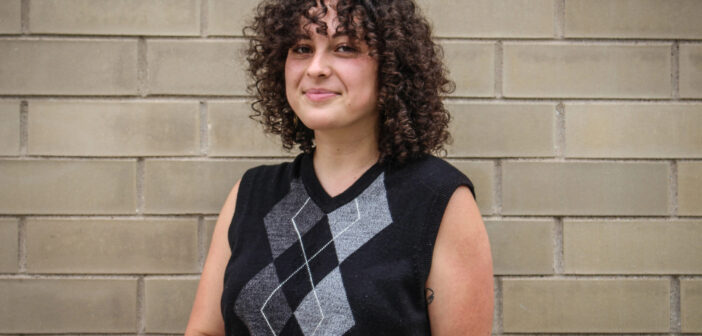It is 10:02 p.m. on a Tuesday. The walk back from the library is ingrained in my brain, allowing me to mindlessly stroll through campus, letting my feet lead the way.
I’m comfortable here. Three years later, I still remember the fastest way to my freshman dorm as well as the paths with the least amount of foot traffic during the day. I feel at ease here and enjoy the liberty of being able to walk on my own without fear of assault.
That is, until this year.
It is now 10:05 p.m. and I can see my apartment’s windows in the distance. My roommates are watching TV, and someone is making dinner. I stop walking for a second to fix my shoe, and am suddenly aware of a presence behind me.
Now, fixing my shoe doesn’t feel important. I grind my heel into the back of my boot, hoping to adjust my footing so I can hurry home. I slightly turn my head so as to not draw attention to myself, but just enough to see if someone is behind me.
Sure enough, in the corner of my peripheral vision stands a man leaning against a parking meter, scrolling on his phone and waiting for me to start walking again.
I start moving my feet, quickening my pace, ignoring the sound of footsteps behind me. My mind is racing, thinking of a way to ensure my safety. I can now hear the jangling of car keys behind me, indicating the man’s proximity. In a panic, I FaceTime my dad. As soon as he picked up and said “hello,” the man behind me turned around and walked away.
This trend of feeling increasingly unsafe on campus has become a reality for many women at Lehigh this year. Every week, I hear of another friend who had an uncomfortable experience at a bar or was followed home. And every week, I grow increasingly afraid of familiar streets.
Since the beginning of the school year, five HawkWatch alerts have been about students being followed home. Two of these reports involved sexual assault, and one involved a discharged firearm.
It is also important to note that most women do not report when they are followed home or assaulted. This reality, coupled with the amount of HawkWatch alerts sent out this year, makes it hard to feel safe on a campus I know all too well.
Then, there is also the issue of being drugged when you’re out. In the past few months, women have reported being drugged at bars with needle injections rather than the usual spiked drinks.
While this is more of an issue in the U.K., needle spiking recently emerged in the U.S. as well, most notably at Travis Scott’s 2021 Astroworld Festival.
This new method of drugging unsuspecting party-goers is extremely unsettling, considering how hard it is to spot a needle in a sea of people.
All of these possibilities have put me on edge. I hardly walk anywhere alone without making a phone call, making sure that someone will hear if something happens to me. I shouldn’t have to do this. I should be able to feel safe in my skin and walk home without the fear of being followed. It isn’t fair that I immediately become uneasy and tense as soon as the sun sets, feeling nervous about the five-minute walk home from the library.
So the question becomes, what do we, as a community, need to do to make female students feel safe on campus?
Besides the obvious – never walking home alone, calling someone, or carrying pepper spray – we must also teach the men here to be more cognizant of a woman’s likelihood of being followed home and subsequently assaulted.
While I would love to solely rely on other women when it comes to the issue of safety, male allies would help me feel more secure as some men only respond to another male’s presence, such as when the man behind me turned around as soon as he heard my dad’s voice over the phone.
Whether this happens through training or seminars, I would feel much more comfortable on campus if the men here were more aware of the fear that grips women when they are faced with walking home at night.
It is crucial to keep this community safe, and that includes protecting women by educating men.






Comment policy
Comments posted to The Brown and White website are reviewed by a moderator before being approved. Incendiary speech or harassing language, including comments targeted at individuals, may be deemed unacceptable and not published. Spam and other soliciting will also be declined.
The Brown and White also reserves the right to not publish entirely anonymous comments.